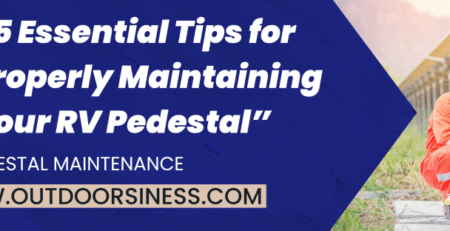How to Buy a Campground: A Guide To Success
So your sitting around the campfire and it hits you; if you owned a campground you could do what you love. If this thought has ever crossed your mind we are here to give you the direction you need.
Step 1:Identify Your Opportunity
Maybe you have noticed a local campground for sale or you are in search of the perfect campground location. Let’s take a look at ways to get started in your search.
Check Online! There are a few websites that specialize in campground sales such as ParkandPlaces.com.
Consider Franchises: If you are not against franchising there are great opportunities such as KOA or Jellystone.
Brokers & realtors; check with a local commercial broker and have them keep an eye out in your area.
Questions to ask?

1. What are you looking for?
Other things to consider during your search is to establish exactly what you’re looking for. Basically there are a few options here; start from scratch, buy a “fixer upper,” or a turn key operation. Sometimes a little elbow grease on a well used campground can keep the operation budget friendly and allow you to make repairs as you go. Whereas, a turn key operation might mean spending more up front, but the initial downtime or rebuild expenses may be lower.
2. To hire or not to hire?
Many small campgrounds are family run and it’s a perfect way to stay busy and save costs. If you are handy, love to work outdoors and can be a steady presence on the ground, this may be a valid option. For those who can justify the expense, having an extra hand on site never hurts! There are also options such as workampers who may work in return for a free campsite!
A campground owner outside of Denver says he loves living on site:
” The pros are getting to do what I love and work from home. Living on site allows me to attend to the needs of the campers and best of all I get to meet new people daily.”
He also mentioned there can be negatives to living on site as well.
“The cons can also be the same as the pros! Always being available can be draining at times, but all in all we love what we do.”
3: Franchises vs. Independent Campgrounds:
First and foremost one decision is not necessarily better than another. This decision depends on your goals and costs associated. Franchises must regularly meet standards so your customer base knows and relies on a quality experience each time. They also benefit from an existing infrastructure, or a proven model of success. This includes brand recognition, reservation systems, and a large marketing support.
For starters, let’s take a look below at an average KOA franchise cost analysis.
Initial Franchise Fee: $30,000
Annual Administrative Fee: $1,500
Royalty Fee: 8%* of camping registration revenue (site reservations only)
Advertising Fee: 2%* of camping registration revenue
Term of Franchise Agreement: 5 Years
Franchise Training: 5 days during KOA University and ongoing
With that, you must also have at least 10 acres of land already purchased and in your possession. KOA also defines a start-up campground needs to commit to a minimum of 75 RV sites and 90 total sites. The average cost to build a site is around 1800-2250 according to KOA.
Franchising while a great option is not the only way. There are thousands of independently owned campgrounds. If you have the drive, know how and ability there can be some advantages to staying private. There is more control over costs, rules, growth and less associated fees. At the end of the day franchises may offer more support and brand recognition, but private owners do have a little more flexibility and room to make it exactly how they are visioning.
4: Know your clientele.
Ultimately you will need to determine who your clientele will be. Will you be offering full time or long term sites? Is your campground for short term stay only? There are many things to consider when determining this and cash flow is a big one. There can be many obstacles to overcome if you do allow long term sites, but ultimately that decision is going to be based on your operations. If you are in a destination or touristy location having full time sites may do more harm than good. If you do want to offer such sites it may be worth having designated spots away for such occasions.
5: Does your location warrant steady traffic?
This one should be pretty obvious so we will only quickly touch base on it. When choosing a location it’s best to think about the demographics. Does your area have heavy traffic and or is it near a destination spot? Many visitors may only be passing through, but it’s a great revenue source. If you can find a location close to local attractions or touristy areas you may be able to capture the best of both worlds.
Step 2: Organize Your Financing
Financing can easily be one of the most complicated steps in buying a campground. A lot of RV park owners struggle to get the necessary financing to build out or make upgrades to a campground. Many buyers find themselves needing to approach multiple lenders, but don’t let this discourage you.
Having a business plan is going to assist in getting lenders on board. It’s best to outline what you want to do and how you are going to do it. It may be necessary to put together a 3 to 5 year plan. In doing so, don’t forget to account for improvements and regular maintenance.
If looking to purchase an existing campground, first consider if you want to utilize a broker or not. There are fees associated (around 5 to 7 percent), but the knowledge and assistance may be worth it. Many campground owners over evaluate their businesses worth and a broker can help gather the right information. It’s also important to make sure you have reserve funds beyond the initial deposit. You never know what surprises you may find that need immediate attention.
Step 3: Ask Questions and Inspect Everything.
First and foremost, do your due diligence before you sign anything. This means asking a lot of questions, doing inspections and lots of research. Few things to check into are land surveys, septic, water, and electric. These are all major expenses and having the right information could protect you from a potential issue in the future.
It may be a valid question to ask the current owners why they are selling as well. This will help gauge and at least put on the radar any concerns the current owners may have.
Step 4: Make An Offer
When you are ready to make an offer, do so on contingencies of the inspection. Its also not uncommon to ask for the following beforehand:
Three years of tax returns, with a P&L
Customer database
Make sure included in the sale is the campgrounds website, social media, etc.
Once an agreement is made, it’s now time to enjoy your new venture! Being a campground owner is not just about money, it’s about being apart of the community and the lives of those who you interact with. Its an investment in a satisfying and gratifying career choice. While there may be unexpected trials be confident in your choice and enjoy doing what you love!








Leave a Reply
You must be logged in to post a comment.